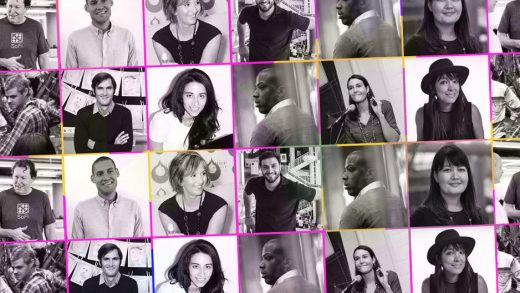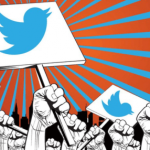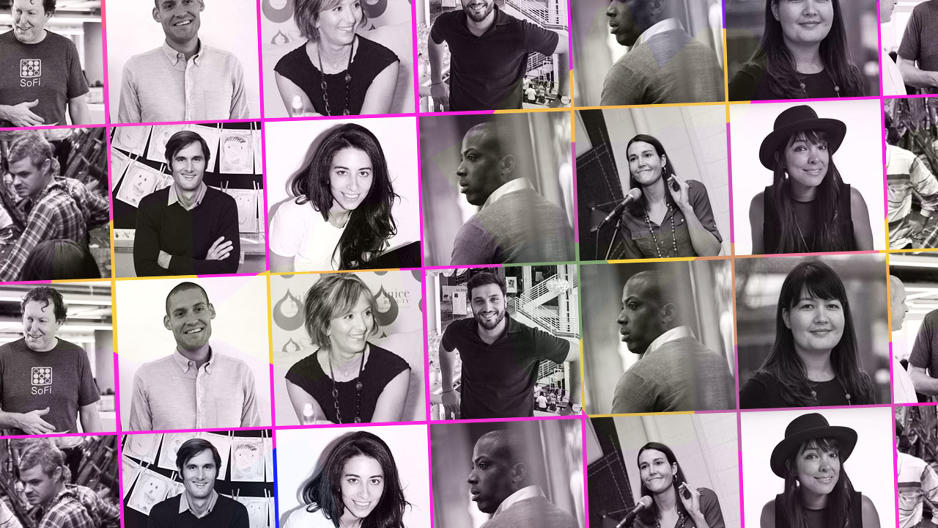12 CEOs Share Their Predictions For 2017
Fast Company asked CEOs across industries—social good, sexual health, beauty, tech, and more—about their expectations for 2017, from challenges they may face to how the election outcome might help affect change. Here’s what they had to say:

Diversity And Inclusion Will Become A Business Imperative
Laura Weidman Powers, cofounder and CEO of tech diversity nonprofit Code2040 (currently also a senior policy adviser to U.S. chief technology officer Megan Smith):
“I am hopeful that 2017 is the year of action in diversity and inclusion in the tech sector. Recently the White House released a resource for science and technology companies that answers the often-shared sentiment of: ‘I’d like to diversify my workforce, but don’t know where to start.’ (Full disclosure: This was one of my projects while working with US CTO Megan Smith in the Obama Administration this year.) We’ve heard from so many companies that this is a business imperative for them and they’d like to act.”

Health And Beauty Will Get Increasingly Personalized
Tristan Walker, founder and CEO of Walker & Company Brands, a health and beauty company for people of color:
“If you think a lot about health and beauty in general, it’s toward a billion dollar industry but still completely on the shoulders of subjectivity. And I think every single player in the industry needs to be thoughtful about how we can continue to respect every single individual person’s physiological makeup and needs. So it’s going to require, over the long term, a race and march toward deeper personalization—and that’s not only for the product that we supply our consumers with, but the experiences. And we want to lead the way there.”

Demand For Safer Female Sexual Health Products Will Increase
Meika Hollender, cofounder and co-CEO of female-friendly condom brand Sustain Natural:
“Because sex is still a taboo subject in this country, destigmatizing this category is essential in order for the industry to evolve. I’m looking forward to more innovative products, more retail support, and less advertising restrictions in the sexual wellness products space. First and foremost, women need to truly understand that their sexual health is a critical part of their overall health and wellness. Once they realize this, they will hopefully demand the same standards of their lubricant as they do their skin care. That’s when we’ll really start to see better, safer, and healthier products become more mainstream.”
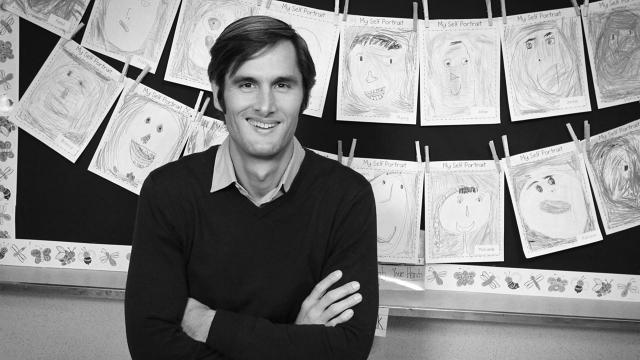
Social Giving Will Converge With Social Payments
Charles Best, founder and CEO of education nonprofit DonorsChoose:
“The world of crowdfunding will distinguish between sites where project creators are supported by strangers, and sites that primarily enable a project creator to hit up their friends and family. Only a few sites comprise the first category, among them Kickstarter, Kiva, Global Giving, Watsi, and DonorsChoose.org—all sites that have developed communities of backers/donors looking to discover compelling projects created by people they don’t know.
Many more crowdfunding sites fall into the second category (those that offer share tools and payment processing to tap the creator’s existing network), and these sites might start to converge with social payment platforms. Both types of crowdfunding will continue to ease the way for people who want to raise money.”

Insurance Will Be Top Of Mind
Jennifer Fitzgerald, cofounder and CEO of online insurance marketplace PolicyGenius:
“My industry—insurance tech—had a big year in 2016 with a record level of investment and new companies emerging. I predict a continuation of this trend in 2017, as well as more consumers thinking about insurance in the context of political and economic uncertainty.”

Food And Retail Will Battle Rising Labor Costs And E-Commerce Heavyweights
Nicola Farinetti, CEO of Eataly USA, the U.S. branch of Italian food market Eataly:
“I believe 2017 will be a challenging year for the restaurant and retail industries, as they are feeling pressure from many different angles. Rent and labor costs are steadily increasing, while at the same time, the e-commerce industry is capturing an increasing amount of the market share. With these challenges, it’s imperative that brick-and-mortar businesses exercise creativity and adapt elements associated with experiential retail in order to stand out and give customers a reason to visit.”
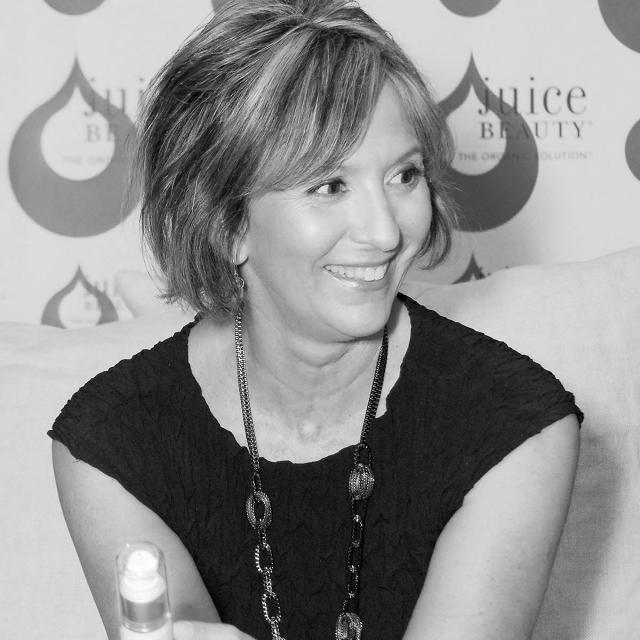
Beauty Retailers And Consumers Will Embrace Organic Brands
Karen Behnke, founder and CEO of organic skin care and beauty brand Juice Beauty:
“My prediction and hope for the beauty industry in 2017 is an increase in consumer awareness and demand for organic products. This has already started to come true as consumers are asking questions and recognizing that you don’t have to compromise your health to achieve skin care efficacy or makeup vibrancy. Finally, I’m hoping that the entire consumer packaged-goods world moves more toward sustainability to protect our planet, as the steps taken thus far by most large companies have been minimal and could move faster so we protect our precious earth’s resources.”

Selling A Product As Internet-Connected Won’t Cut It Anymore
Linden Tibbets, cofounder and CEO of task automation service IFTTT:
“The adoption of Amazon Alexa and Google Assistant shows that consumers are ready to embrace new API-driven interfaces. Pixels aren’t going anywhere, but they are no longer the only game in town. Consumers will expect the services they use to be accessible through voice—and bots, in VR, and on all of their devices and screens. To meet them there, companies will begin to define their business in terms of their API, instead of just focusing on their app or website.
I also think we’ll see a shift from connectivity as a feature to connectivity as table stakes. That means it won’t be enough for a company to launch or sell themselves as another internet-connected something—they’ll need to highlight the experiences their product will enable by virtue of that connectivity. Why will this connection make your world, yourself, your relationships better? How will the service this connected device powers seamlessly integrate with your complex world?
Finally, this could be the year that technology makes a significant impact on the really hard stuff. Things that haven’t gotten much better for decades: education costs, health care, and energy. There’s amazing work being done, but I’m hoping these sectors accelerate in 2017. The stakes couldn’t be higher.”

Agents For Social Change Will Join Forces
Aria Finger, CEO of social change nonprofit Do Something:
“In 2017, our industry is going to work together to protect people’s rights and take local action. Collaboration is not easy, but we are all striving to protect people from hate crimes, Islamophobia, and anti-immigrant sentiment, and I’ve already had several conversations with other organizations about how we can work together to do that.”

Upstarts Will Continue To Challenge Banks
Mike Cagney, cofounder and CEO of marketplace lender SoFi:
“The Office of the Comptroller of the Currency launching a national lending charter for fintech in 2017 is a big deal. We’ll begin to see fintech firms offer multiple products, and the difference in products between the new entrants and the old guard will become blurred. But fintech will continue to innovate on speed, performance, and convenience, and raise the bar for banks who were previously able to rely on their deposit franchises to keep the upstarts at bay.”

The Stigma Surrounding Periods Will Keep Decreasing
Miki Agrawal, founder and CEO of period-proof underwear startup Thinx:
“I think the period conversation is fast evolving and THINX hopes to continue to be on the frontlines of it. We are already seeing new period companies pop up, and we hope to keep pushing the envelope forward to destigmatize periods once and for all. I think we will be seeing more stories pop up in this space, and it will be amazing to be a leading part of it.”

Charities Will Become More Transparent About How Donor Money Is Used
Scott Harrison, founder and CEO of clean water nonprofit Charity: water:
“I think we’ll see more nonprofits take advantage of new mediums like virtual reality to tell their stories and inspire donations. We produced a VR film last year taking people inside the water crisis, and it’s been a really effective tool to drive awareness around the issue and motivate people to get involved.
I also expect donors to continue to ask for increased financial transparency and proof of impact before they give. This has been so important to us from the start, which is why we created a model that allows us to send 100% of public donations to the field and prove every project. I think we’ll start to see more charities move toward this level of transparency as it becomes more critical for donors.”
Fast Company , Read Full Story
(22)

